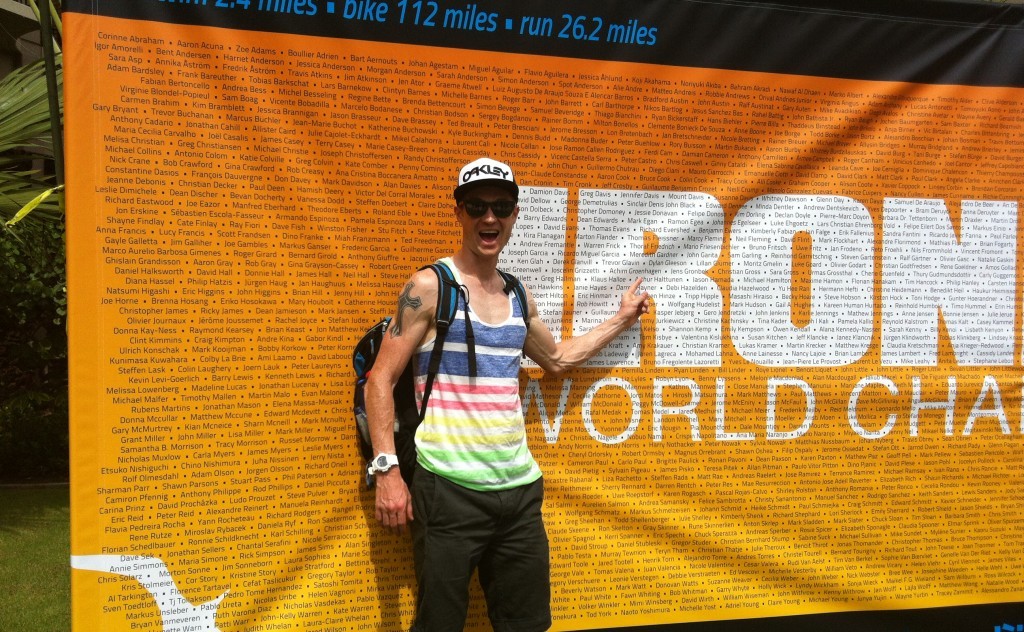Preparing For Your Destination Race
I recently wrapped up a trip to the southern United States, where I raced my first couple of Ironman 70.3 races as a professional triathlete. Though the results were far from what I had originally hoped for, the trip provided some extremely valuable learning experiences. I have only raced a few times internationally, most races have been kept close to home in beautiful British Columbia.

With very few local races providing professional prize purses, it’s something I am going to have to become a lot more familiar with if I want to race frequently. I didn’t quite realize it before this trip, but taking part in a destination race is very different than racing close to home.
It can provide a whole new set of problems which is why it’s so important to be well prepared if you want all your hard work and sacrifices in training to pay off come the big day.
I have put together a list of tips to consider before your next destination race, I learned some of these the hard way. I always prefer to learn from other peoples’ mistakes, so if I can be the goat this time around it’s only fair!
1. Don’t just pick the cheapest flight!
Pick a flight that arrives mid-day; very often flights are delayed, involve crying babies and have awful meal options.
By picking a flight that arrives earlier in the day, you decrease the chances of arriving sleep deprived and starving at 3 a.m. if inevitable flight delays occur. Bring ample healthy snack options on board with you as you want to take care of your body just like you would in a normal training week.
2. Make sleep and meal timing a priority
It’s easy to arrive a couple days before a race in a new city and completely lose track of time. All of a sudden you’re eating dinner at 9:30 p.m., going to bed late and only getting 5 hours of sleep.
Just like this would have a negative impact on a big training session, it could have a negative impact on your race. Being off 1 or 2% can make a big difference in hitting that PB. Make sure to eat at normal times and aim to get an undisturbed 8 hours of sleep each night.
3. Pack the essentials in your carry on
Obviously if you’re participating in a triathlon you can’t exactly pack your bike in your carry on; however, you can pack things like your race day running shoes, your watch, race kit or even your bike shoes and pedals.
That way if your checked bag gets lost or is delayed you don’t have to go into complete panic mode!
4. Do your homework
Look into where the nearest running store, bicycle shop, pool and even Whole Foods is. Things don’t always go smoothly when you arrive, you may be in search of a new set of laces or a bike mechanic.
Don’t assume they will have what you’re looking for at the expo. You’ll want to know where you can get healthy familiar food nearby as well. One of the hardest things about travelling to races for me is finding good food options.
Figuring these things out before you arrive at your destination will help reduce stress and prepare you for success on race day.
5. Give yourself some days to be a tourist
If you’ve signed up for a destination race, it’s likely somewhere you have been interested in travelling to – so don’t book your departure flight for 3 hours after the race!
Give yourself a few days to enjoy the sites, the foods, the culture and to be present spending time there with your family and friends if they happen to be joining to support you. I can never enjoy these things before the race as I’m usually stressed out and focused on race day. Beignets from the French Quarter in New Orleans are much better enjoyed after the race!
If you would like to follow along on my race season, you can check out my blog. I recently wrote a post about my trip to New Orleans and Galveston, so if you want to get a bit more insight into the mistakes I made on the trip and what I learned it’s worth the read. Happy training!
Dylan Gleeson
Kintec sponsored triathlete
No Comments